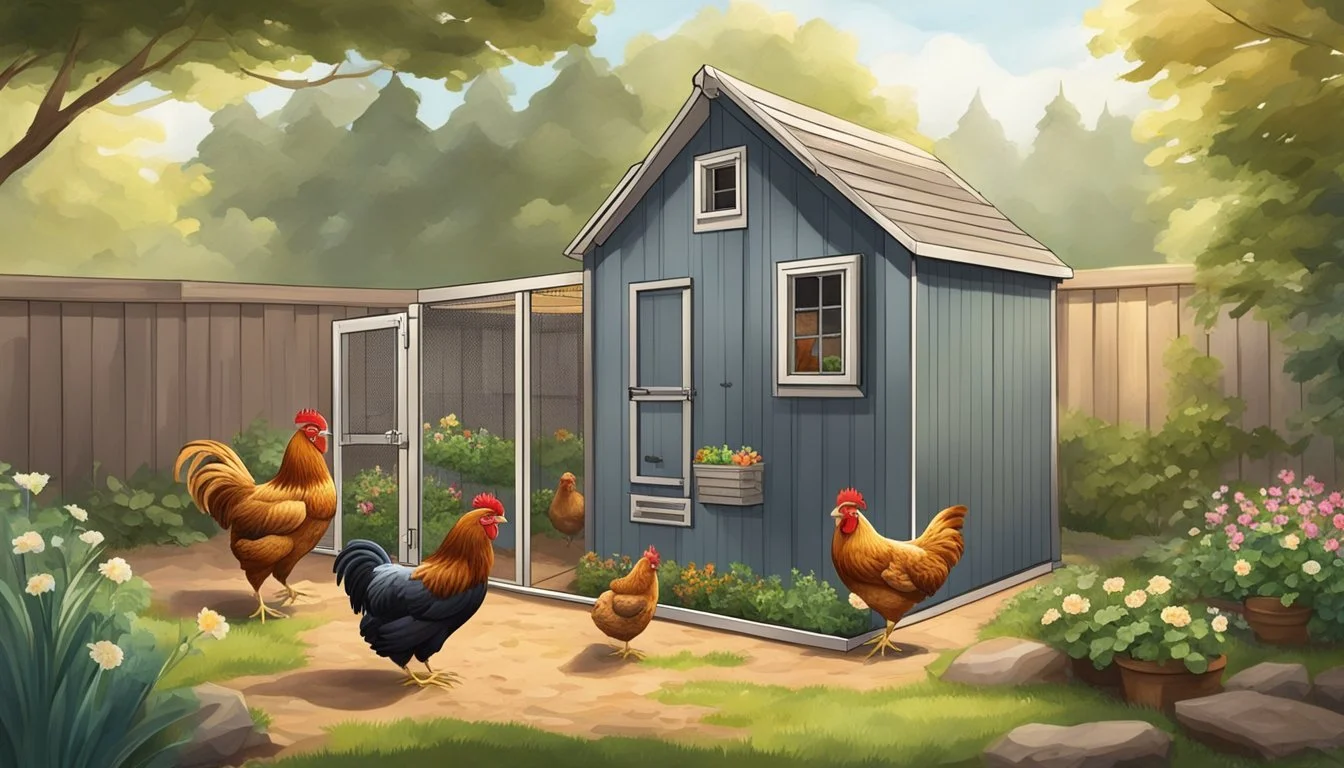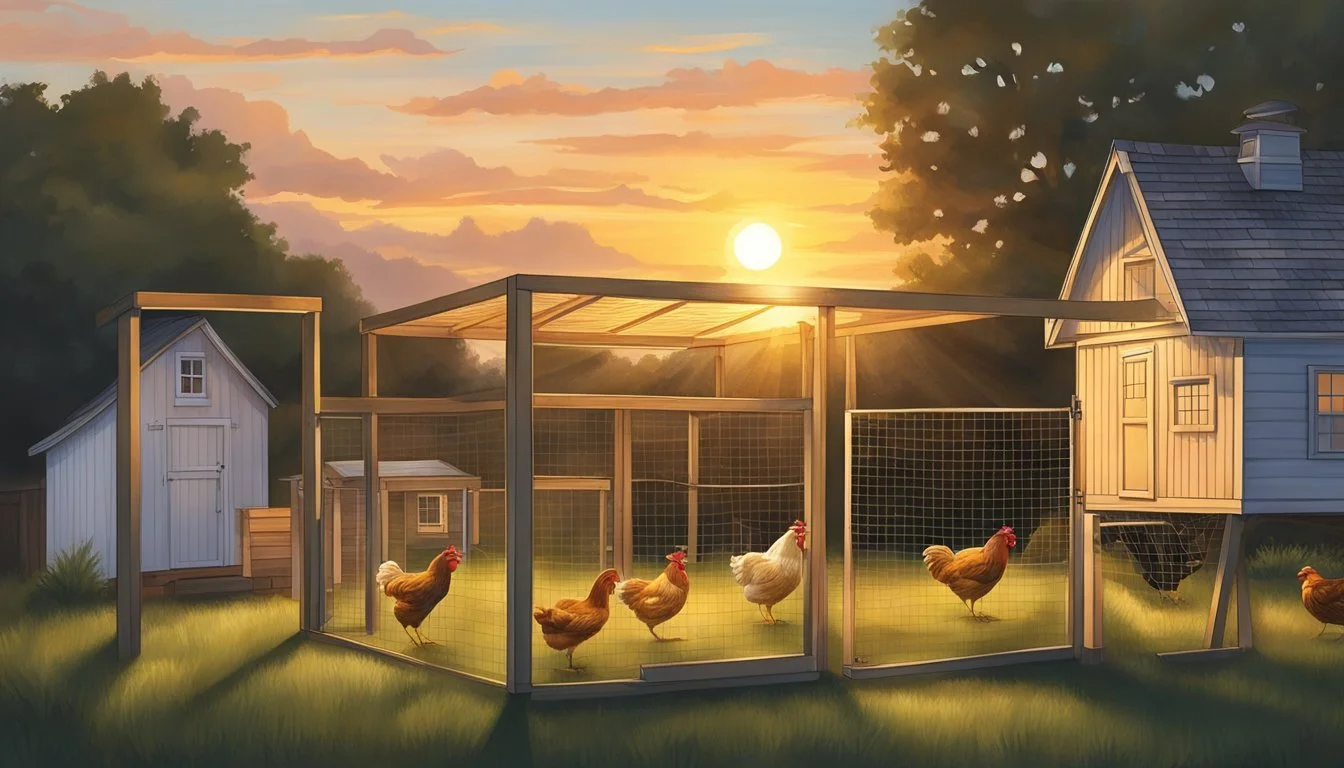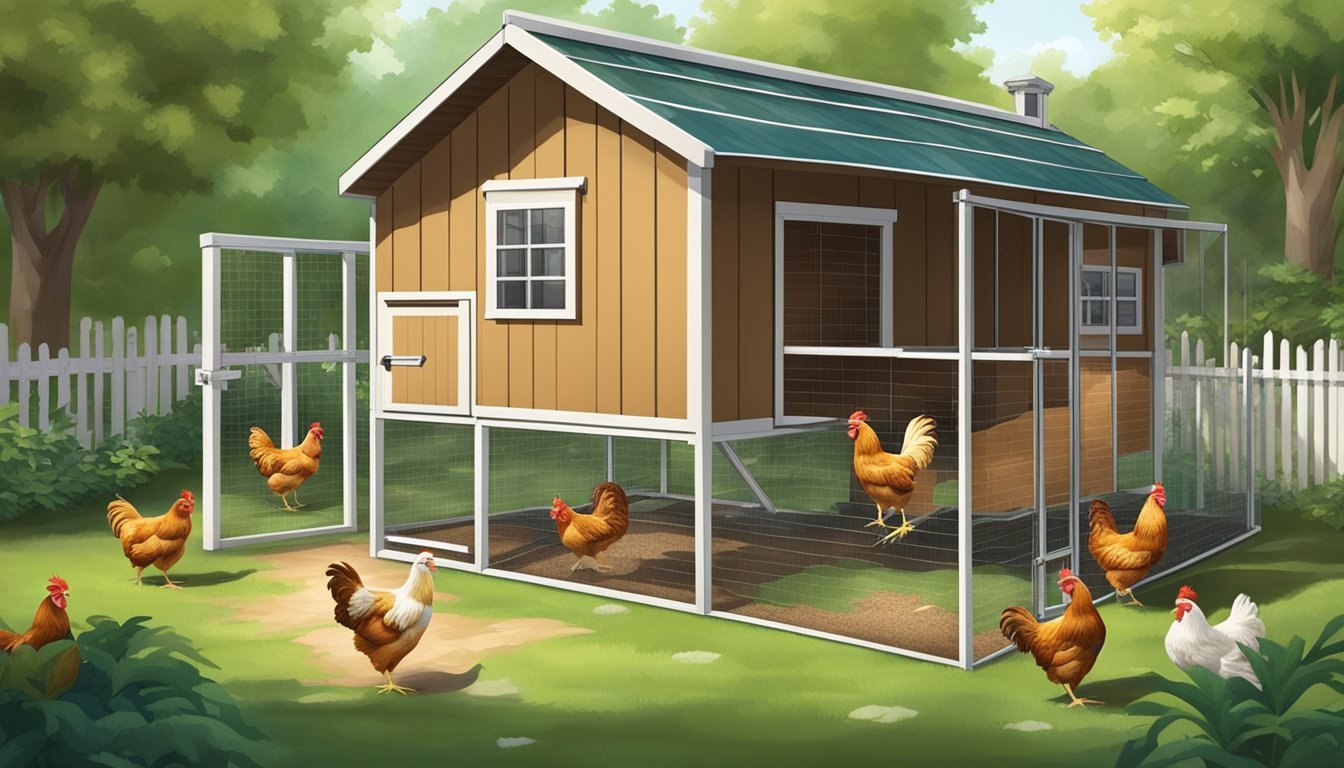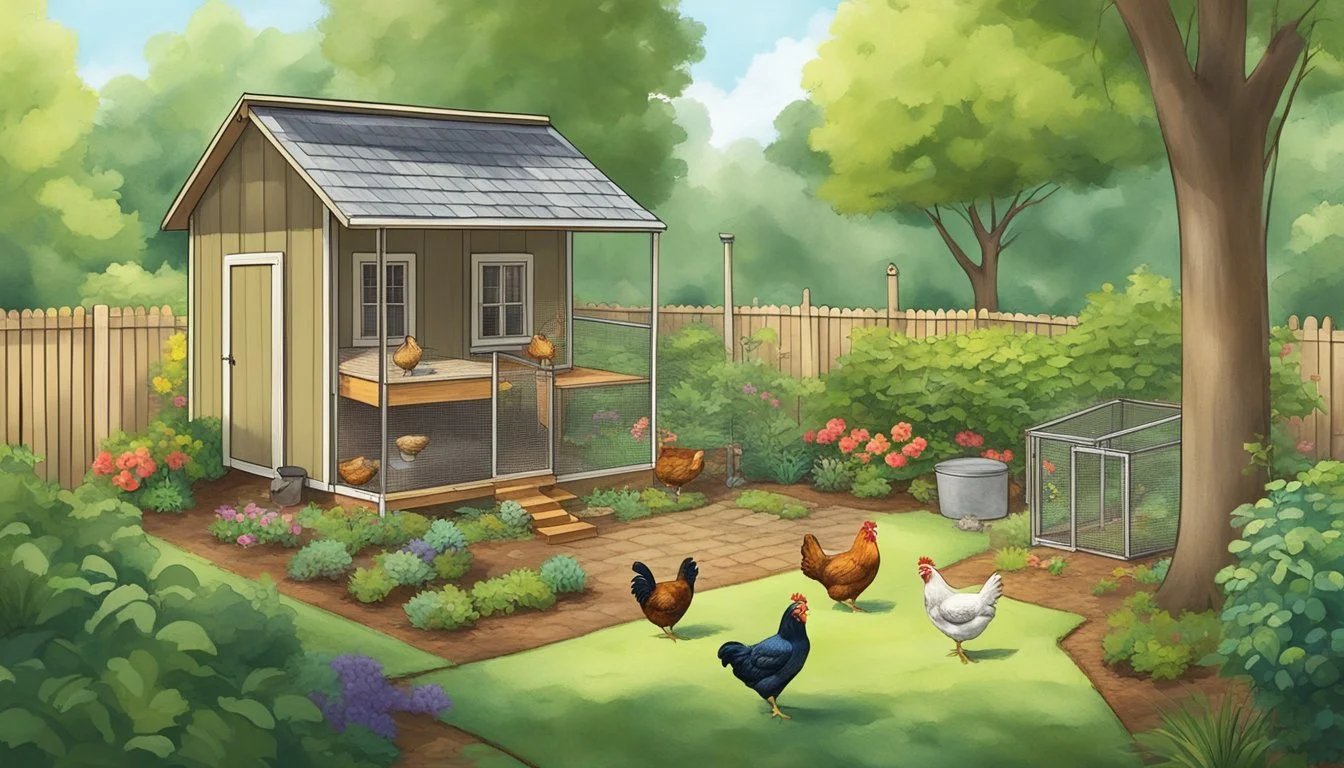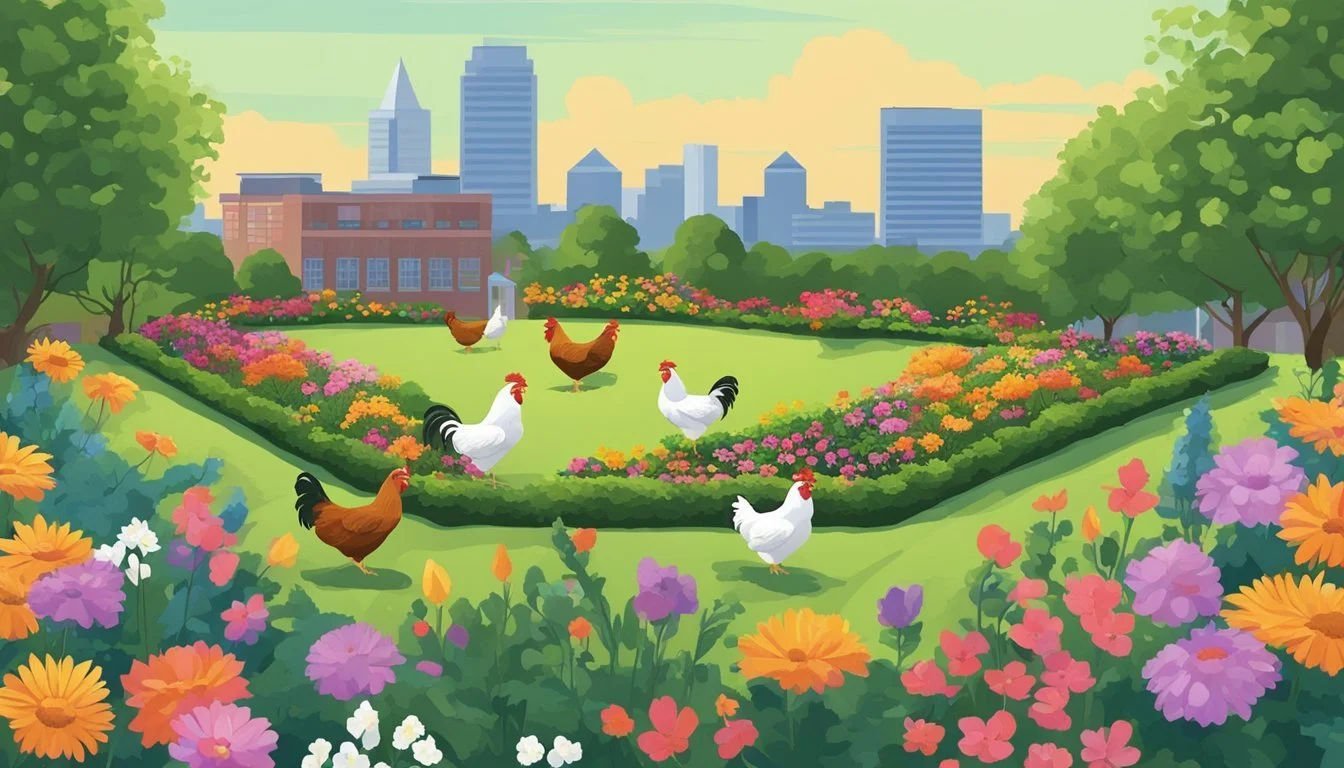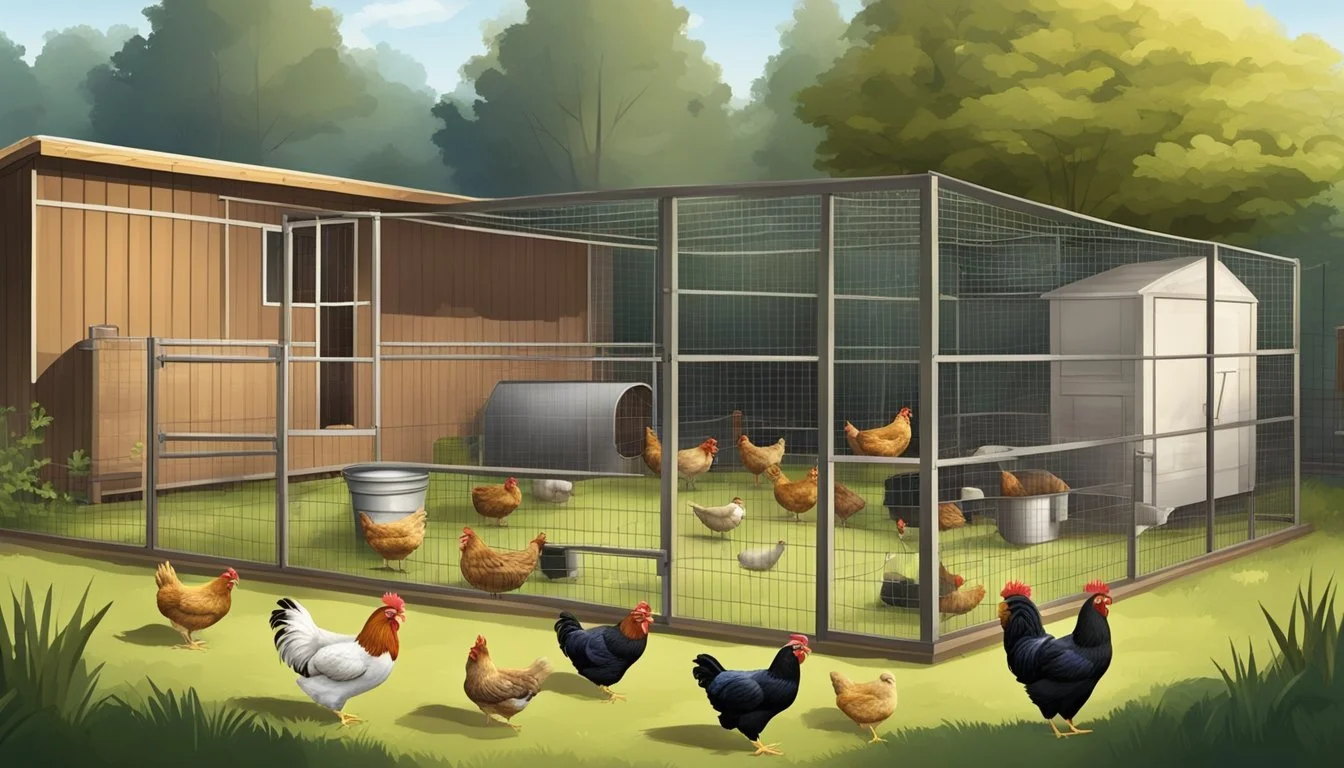Keeping Backyard Chickens in Winston-Salem, NC
Essential Tips for Urban Poultry Farming
In Winston-Salem, North Carolina, the practice of keeping backyard chickens appeals to many residents wanting to embrace a more sustainable lifestyle while enjoying the benefits of fresh eggs. The city has established guidelines that allow individuals to keep chickens on their property, ensuring that both the animals and neighbors can coexist peacefully. The local ordinance permits the keeping of up to five hens, although roosters are prohibited to avoid noise issues.
The rules emphasize proper care and housing for the chickens, requiring an enclosed coop and run to protect the birds from predators and to contain them within the owner's property. The coop must provide at least 3 square feet per chicken, and the enclosed run must offer 10 square feet per chicken, allowing adequate space for the chickens to roam. These regulations help to maintain cleanliness and order in residential areas.
It's important for prospective chicken keepers in Winston-Salem to be aware that these guidelines are in place to promote the welfare of the chickens and the well-being of the community. Compliance is essential for the success of urban chicken farming, with the city requiring a permit for keeping backyard poultry. Those interested are advised to refer to the specific details of the local ordinance to ensure they meet all requirements before starting their own backyard flock.
Understanding Local Backyard Chicken Ordinances
Keeping backyard chickens in Winston-Salem, NC, involves adhering to specific city and county ordinances to ensure compliance with local laws.
Winston-Salem City Code and Regulations
Under the City Code of Winston-Salem, residents are permitted to keep chickens within city limits, subject to certain conditions. The Winston-Salem City Council has outlined these regulations in Section 6-6 of the City Code. Notably, chicken coops must provide at least 3 square feet per chicken and must be at least 2 feet high per level. They should be situated within an enclosed run that is properly fenced to contain the chickens and offer sufficient space — typically 10 square feet per chicken.
Chicken Ordinance in Forsyth County
In Forsyth County, which encompasses Winston-Salem, the chicken ordinances differ slightly from those of the city itself. County regulations may influence coop construction, location, and the allowable number of animals. Residents should verify whether city or county laws apply to their property, as Forsyth County ordinances will be relevant for areas outside the city's jurisdiction but still within the county limits.
Permits and Zoning Requirements
Acquiring the correct permits is a critical step in the lawful keeping of backyard chickens. The Inspection Division may be involved in the approval of coop construction and ensuring that the structures adhere to local zoning requirements. Properties need to be appropriately zoned, and some areas may require a zoning permit before establishing a backyard chicken habitat. It is crucial for residents to obtain this permit to avoid penalties and ensure full compliance with all relevant ordinances.
Residents are encouraged to contact local authorities directly for the most current information and any assistance regarding the application process for permits and understanding zoning laws.
Setting Up Your Chicken Coop and Run
When establishing a backyard poultry presence in Winston-Salem, NC, residents must adhere to specific regulations concerning the design and placement of chicken coops and run areas. Proper consideration ensures the safety and health of the chickens, as well as compliance with local ordinances.
Coop Design and Location
In Winston-Salem, the coop must be positioned at least 20 feet from any adjoining property lines, and it is often placed in the backyard. It should provide a minimum of 3 square feet per chicken to ensure adequate space. When designing the coop, one must use solid materials to offer robust shelter and include necessary features such as ventilation, insulation, and access for cleaning.
Minimum Coop Space Requirements: 3 sq. ft/chicken
Design Considerations: Solid materials, ventilation, insulation
Location: Min. 20 feet from property lines
Creating a Secure Run Area
Each chicken should have a minimum of 10 square feet in the run area. The run must be enclosed, constructed with durable materials to prevent escape or intrusion, and should be at least four feet high. It should also feature a self-closing gate or access point to maintain containment and ease of access.
Minimum Run Space Requirements: 10 sq. ft/chicken
Run Height: At least 4 feet
Security Features: Durable materials, self-closing gates
Shelter and Protection from Predators
Chickens require protection from various predators, including hawks, foxes, and raccoons. The coop should have a secure closure system to prevent nocturnal predator invasions. For the run, consider a wire mesh overhead if aerial predators are of concern. All structures should be inspected regularly for potential vulnerabilities.
Predator Protection: Secured closures, regular inspections
Recommended Materials for Run: Wire mesh or solid covering
Construction: Overhead protection for the run if necessary
Proper Chicken Care and Management
When raising chickens in Winston-Salem, NC, it’s crucial to focus on their diet, hydration, and waste management to ensure they are healthy and the area remains sanitary.
Feeding Your Chickens
Chickens require a balanced diet to lay high-quality eggs and maintain overall health. Owners should provide a minimum of 1/3 pound of feed per day for each laying hen. This equates to approximately five pounds of feed per dozen eggs produced. Typically, chick feed should be placed in shallow troughs with one linear inch of trough space per chick, increasing to two inches after two weeks.
Watering Systems
An optimal watering system preserves cleanliness and provides consistent access to water. Chickens need an abundant supply of clean water daily, which can be facilitated by using watertight containers. These containers should be checked and refilled daily. To avoid spillage and contamination, water dispensers designed to prevent chickens from walking in or tipping over their water are recommended.
Handling Manure and Waste
Proper manure and waste management are vital in keeping a sanitary environment for chickens and neighbors. Waste should be removed regularly and stored in a fly-proof, secured bin. Disposal methods must comply with city regulations, ensuring waste materials are handled appropriately to avoid odors and pests. Manure can also be composted to improve soil quality, provided it is managed in a way that prevents fly breeding.
By adhering to these specific care requirements, chicken owners in Winston-Salem will maintain a healthy flock and a clean coop environment.
Health and Well-being of Your Chickens
Maintaining the health and well-being of backyard chickens in Winston-Salem involves proactive disease prevention strategies and regular check-ups with a veterinarian. These measures help ensure a productive and contented flock.
Disease Prevention
Preventing disease is crucial for the health of backyard chickens. One of the first steps is to keep their environment clean. Coop sanitation includes regular removal of waste and disinfecting surfaces. Feed should be placed in shallow troughs, allowing one linear inch of feed trough per chick and increasing to two inches per chick after two weeks. Clean, fresh water should be available at all times. Good practices also involve limiting the flock’s exposure to wild birds and rodents which can carry diseases.
Backyard chicken owners should always wash their hands with soap and water after handling birds or cleaning their coop. Additionally, wearing a face mask is advisable when cleaning to avoid respiratory issues from dust and dander. Signs of illness in chickens can include lethargy, abnormal droppings, sneezing, coughing, or a decrease in egg production. If any of these symptoms are observed, it is essential to act promptly.
Regular Veterinary Check-ups
Regular check-ups with a qualified veterinarian are essential to manage and prevent health issues in poultry. A veterinarian can provide vaccinations against common diseases and conduct health assessments to detect any early signs of illness. If any abnormalities are observed in chickens' behavior or health, a veterinarian should be consulted without delay. They can also guide proper nutrition which can enhance the chickens' immune system and overall condition.
Chickens require about 1/3 pound of feed per day while laying, and it’s a veterinarian's role to recommend suitable feed types and supplements for optimal health and egg production. Owners should ensure a balanced diet rich in necessary vitamins and minerals, tailored to the flock's specific needs, as recommended by their veterinarian. Regular veterinary care also presents an opportunity to discuss the proper ways to handle and care for chickens to prevent the spread of any potential diseases.
Egg Production and Usage
Maximizing egg production and ensuring the safe consumption of eggs are crucial for backyard chicken keepers in Winston-Salem, NC. Providing hens with proper care and nutrition can lead to a steady supply of fresh eggs, contributing to local food sustainability.
Managing Egg-Laying Hens
To maintain a consistent egg production, one must ensure that laying hens have a balanced diet, fresh water, and a comfortable environment. It's estimated that a hen requires about one-third pound of feed daily to lay eggs effectively. The following are key components of a hen's diet:
Protein: Vital for egg production and overall health.
Calcium: Essential for strong eggshells.
Grit: Helps hens digest their food.
Additionally, coop and run cleanliness, adequate space, and protection from predators are necessary to keep hens stress-free for optimal laying conditions.
Using Fresh Eggs Safely
Fresh eggs must be handled with care to prevent contamination:
Collection: Eggs should be collected regularly and stored promptly.
Cleaning: Eggs can be wiped with a dry cloth or washed in water warmer than the egg's temperature.
Storage: Store eggs in a refrigerator at 40°F (4°C) or below.
By following these guidelines, you ensure that your homegrown eggs are not only a delicious local food source but are also safe to eat.
Community and Legal Considerations
In Winston-Salem, keeping backyard chickens involves both neighborhood dynamics and adherence to city ordinances. Residents must balance the benefits of poultry with respect for neighbors and compliance with legal requirements.
Noise and Neighborhood Relations
Residents keeping chickens must be mindful of noise levels as chickens, especially roosters, can be quite vocal. To maintain good neighborhood relations within city limits, Winston-Salem prohibits roosters to minimize disturbances. In addition, coop and run placements should consider the proximity to neighbors, keeping the structures at least 20 feet from any adjoining property line to avoid noise complaints.
Legal Consequences of Non-Compliance
Failure to comply with local ordinances can lead to consequences. Violations of chicken keeping regulations in Winston-Salem are subject to enforcement actions that may include warnings, fines, and potentially the removal of the chickens. Local news sometimes report on enforcement actions to remind the community of the city's commitment to these standards. Residents should ensure their coops and runs are within the prescribed dimensions and that they do not exceed the limit of five hens to avoid any legal issues.
Additional Resources on Backyard Chickens
For residents eager to maintain a healthy chicken flock in Winston-Salem, NC, ample resources are available to assist with backyard poultry endeavors. These resources provide thorough information on care, feeding, local regulations, and much more.
NC State Extension Services
The NC State Extension offers comprehensive guidance for backyard chicken flocks. Their publications and services are specifically tailored to North Carolinians, providing up-to-date advice on breeds suitable for the local climate, and measures for maintaining chicken health. They cover critical indicators of illness and best practices for coop construction. For more hands-on assistance, one may contact their local county center, which offers support for residents in Winston-Salem as well as those in nearby cities like Durham, Raleigh, and Charlotte.
Resources available:
Backyard Flock Management
Feeding and Nutrition
Local Ordinance Information
Disease Prevention
Residents can access a wealth of online information and reach out to their county extension offices for further support.
Learning from Local Backyard Flock Owners
Networking with local backyard flock owners can also serve as a highly valuable resource. One can gain insight from others' experiences in raising chickens through local forums, such as the BackYard Chickens community. This platform allows potential and current chicken owners in Winston-Salem to share tips, learn from each other's successes and challenges, and stay updated on any changes in local regulations.
Ways to connect:
BackYard Chickens Forum
Local Gardening Clubs
Community Workshops
Engaging with experienced local owners is often the best way to get practical advice that’s been tested in a similar environment.
Enhancing Your Garden with Chickens
Keeping backyard chickens in Winston-Salem not only provides residents with the joy of producing their own eggs but also offers several benefits for garden health. By incorporating chickens into garden spaces, homeowners can enrich their soil and bolster plant growth through natural means.
Benefits of Chickens in the Garden
Chickens contribute to a garden ecosystem in several ways. They serve as natural pest control by consuming various insects and weeds that might otherwise harm plants. This activity reduces the need for chemical pesticides, promoting a more organic gardening approach. Additionally, chickens' foraging habits help aerate the soil, facilitating better root growth and water absorption.
The presence of chickens in a garden can also be an educational opportunity for families to learn about sustainable living practices. Children and adults alike gain insight into where food comes from when they have firsthand experience with producing their own eggs. This practice fosters an understanding of the food cycle and encourages a connection with nature.
Utilizing Chicken Manure as Fertilizer
Chicken manure is a valuable resource for any garden, acting as a powerful natural fertilizer. It is:
Rich in nitrogen, phosphorus, and potassium – essential nutrients that help plants grow.
Capable of improving soil texture and water retention when properly composted.
To safely use chicken manure in the garden, it should be composted before application to ensure that any pathogens are destroyed and to reduce the potential for burning plants with its high nitrogen content. A simple table for composting time:
Composting Time Description Immediate Fresh manure can be harmful to plants due to high ammonia levels. 6-12 months Properly aged and composted manure is safe for garden use.
Properly aged chicken manure enhances soil fertility and structure, providing a steady supply of nutrients to plants throughout the growing season. Gardeners in Winston-Salem who take advantage of this natural by-product can enjoy a flourishing garden and robust plant growth.
Considerations for Slaughtering and Consumption
When it comes to slaughtering backyard chickens in Winston-Salem, NC, residents must be well-informed about local ordinances and methods for safe and humane processing. Each step, from understanding regulations to preparing the poultry for meals, impacts the backyard chicken experience.
Local Slaughter Regulations
In the city of Winston-Salem, the right to slaughter chickens is typically subject to stringent city and state regulations designed to address public health and nuisance concerns. Backyard poultry enthusiasts should consult the city's animal ordinances to comprehend the permitted conditions for slaughtering. They must ensure that slaughtering is done in a manner that does not disturb the community or create public health issues. It's particularly important that residents use an approved method and location, often referred to as a slaughter area or pit, to perform this practice humanely and responsibly.
Approved Slaughter Methods: The city may only allow certain methods of slaughter that adhere to humane and sanitary standards.
Designated Slaughter Area: Slaughtering typically must occur in an area away from public view and in compliance with state and local health codes.
Preparing Chicken for Consumption
Once chickens have been lawfully and humanely slaughtered, preparing them for consumption involves a series of steps that are essential for safety and quality. Proper processing includes:
Scalding: This loosens feathers for easier plucking, often done in water between 130°F to 165°F.
Plucking: Removing all feathers to expose the skin.
Evisceration: Removing internal organs, being cautious to avoid rupturing the intestines, as this can contaminate the meat.
Cleaning: Thorough washing of the carcass is critical to remove any remaining feathers, blood, or debris.
To ensure public health, individuals processing chickens should always employ sanitary practices and consider sending a sample of their processed chickens to a lab for quality assurance. Consumption can be safe and rewarding for those who strictly follow these guidelines.
Integrating Chickens with Other Pets
Keeping backyard chickens in Winston-Salem involves careful planning when introducing them to other pets, such as dogs, and taking into consideration the interaction between chickens and garden plants. It's important to manage these relationships properly to ensure the safety and well-being of all involved.
Coexisting with Dogs
Dogs vary in temperament and prey drive, hence the need to assess and, if possible, train them before introducing backyard chickens. Dogs should be supervised during initial interactions to prevent any accidents. A dog's behavior can typically be gauged in controlled environments before allowing them to roam freely with hens in the yard.
Chickens and Plants Interaction
Backyard chickens can benefit gardens by aerating soil and controlling pests. However, certain plants can be toxic to chickens, and they are known to scratch and may damage tender plants. Designating separate spaces or using protective barriers can protect your garden while allowing chickens to roam and forage safely.

